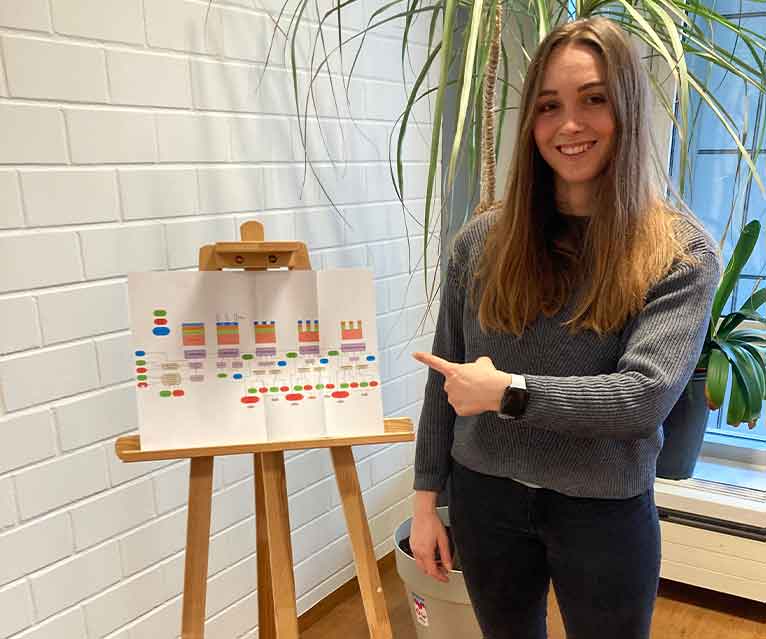Methodology of Life Cycle Assessment using the example of a comparative analysis of three film coating processes.
Jennifer Goldbrunner wrote her master's thesis at Fraunhofer EMFT on a highly topical and relevant subject. She focused on the comparative life cycle assessment of different microelectronic metallization processes on flexible substrates.
The aim was to identify the differences in environmental impacts between and within the metallization processes, as well as the causes of these differences. Using the Life Cycle Assessment (LCA) methodology, the potential environmental impacts of the processes on the three protection categories of human health, ecosystems, and resources (endpoint analysis), as well as global warming (midpoint analysis), were assessed.
In the evaluation of the Life Cycle Assessment, it was found that the subtractive etching process exhibited the highest potential environmental impacts at the endpoint level, while the semi-additive process showed the highest potential impacts on global warming. The LEO technology developed at Fraunhofer EMFT did not exhibit the highest environmental impacts in any of the analyzed categories. Copper and electricity were identified as the factors that most strongly influence the life cycle assessment of the three examined metallization processes.
The results of Jennifer's thesis contribute to identifying improvement potentials of the metallization processes in terms of environmental impacts.
